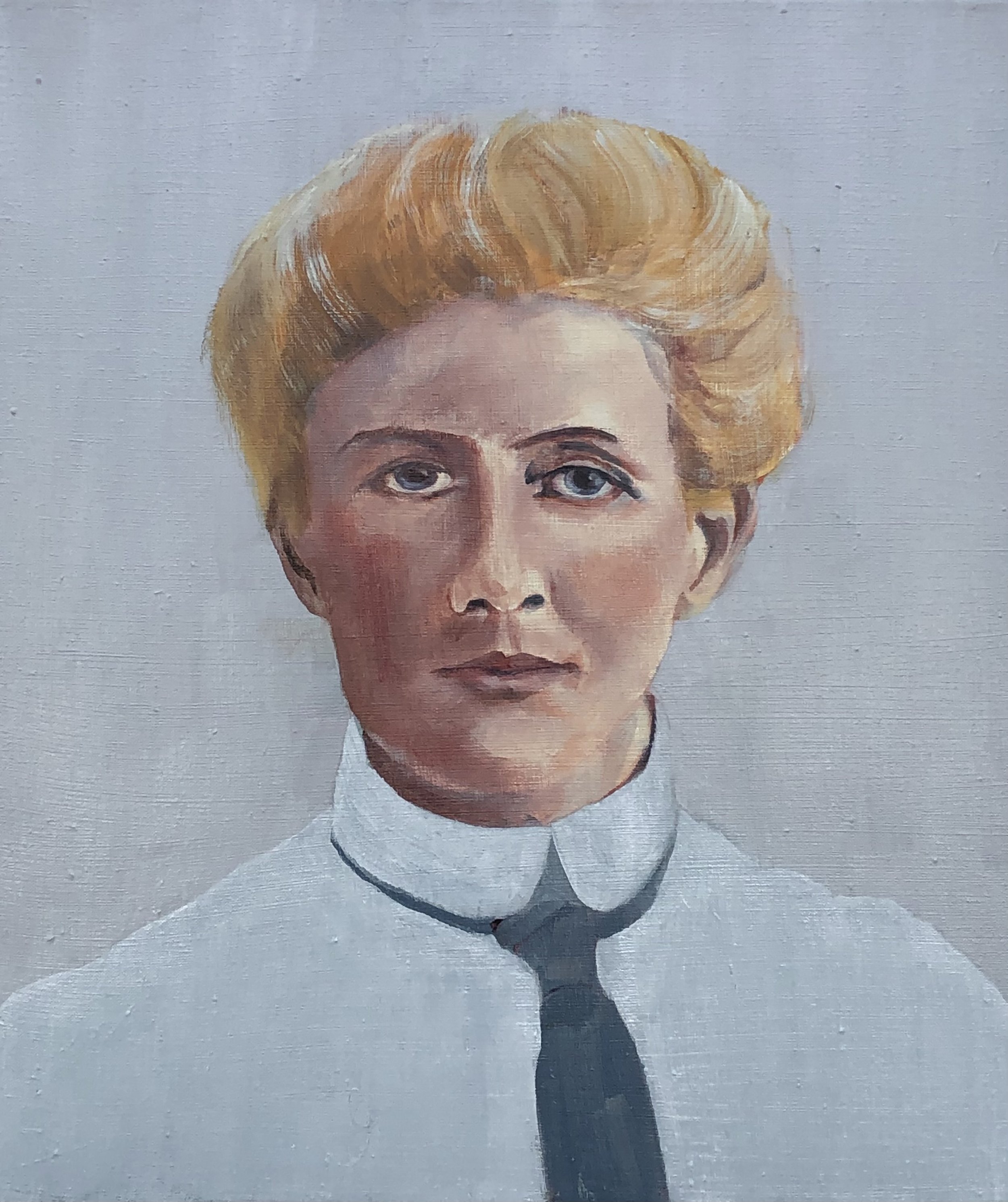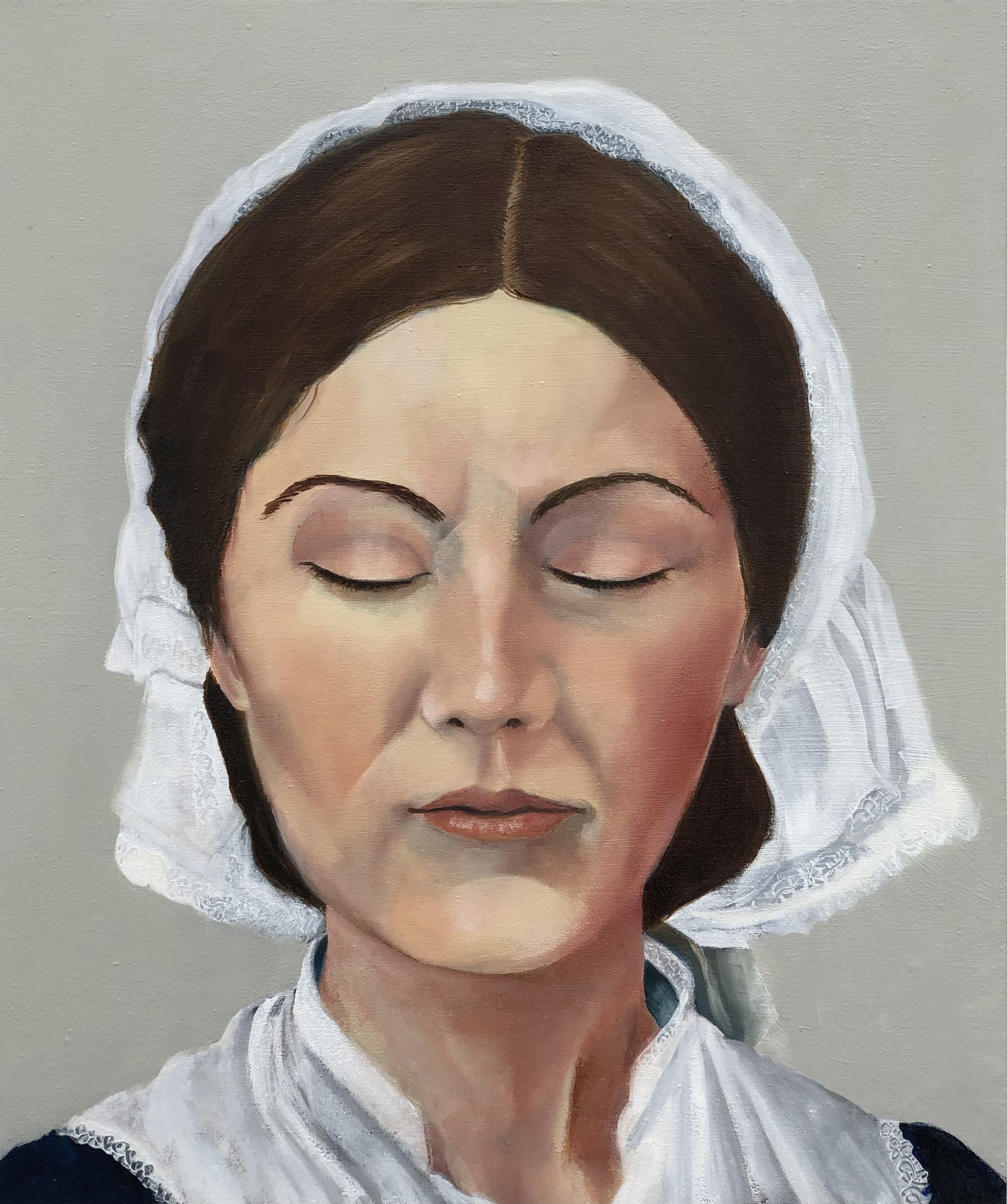Edith Louisa Cavell (1865 – 1915) was a British nurse. She is celebrated for treating wounded soldiers from both sides without discrimination during the First World War and for helping some 200 Allied soldiers escape from German-occupied Belgium. Cavell was arrested, court-martialled under German military law and sentenced to death by firing squad. Despite international pressure for mercy, the German government refused to commute her sentence, and she was shot. The execution received worldwide condemnation and extensive press coverage.
Oil on Linen 35x30 cm 🟢
The night before her execution, she said, "Patriotism is not enough. I must have no hatred or bitterness towards anyone". These words were inscribed on the Edith Cavell Memorial opposite the entrance to the National Portrait Gallery near Trafalgar Square. Her strong Anglican beliefs propelled her to help all those who needed it, including both German and Allied soldiers. She was quoted as saying, "I can't stop while there are lives to be saved." The Church of England commemorates her in its Calendar of Saints on 12 October.
Cavell, who was 49 at the time of her execution, was already notable as a pioneer of modern nursing in Belgium.

